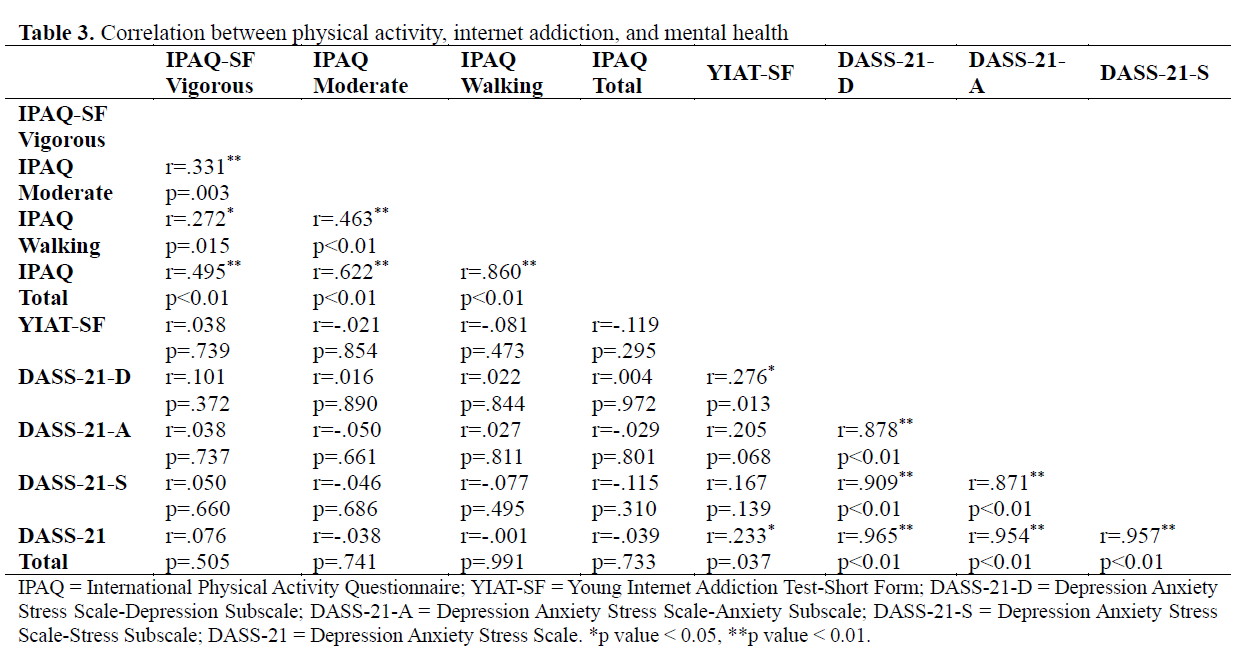THE RELATIONSHIP BETWEEN PHYSICAL ACTIVITY, INTERNET ADDICTION, DEPRESSION, ANXIETY AND STRESS IN UNIVERSITY STUDENTS DURING THE COVID-19 PANDEMIC
- Original Article
- Published on November 27 2023
 Özlem Menevşe
Özlem Menevşe
 Merve Nur Kırçova
Merve Nur Kırçova
 Zeynep Şenyiğit
Zeynep Şenyiğit
 Ezgi Türkben
Ezgi Türkben
 Derya Kara
Derya Kara
 Fatma Akmeşe
Fatma Akmeşe
 Melike Şeyda Fidancı
Melike Şeyda Fidancı
 Büşra Kepenek Varol
Büşra Kepenek Varol

Purpose: The aim of this study was to investigate the relationship between physical activity, internet addiction, depression, anxiety and stress in university students studying in the physiotherapy and rehabilitation department in Turkey during the COVID-19 pandemic.
Methods: Eighty students were included in the study. The short form of the International Physical Activity Questionnaire was used to assess the level of physical activity in this study. Internet addiction of the students was assessed using 12-items Young’s Internet Addiction Test - Short Form. Mental health (depression, anxiety and stress) of the students was assessed using the Depression Anxiety Stress Scale (DASS-21). All data were collected via online survey system.
Results: Fifty five percent of the students had low physical activity levels. Internet use was found to be normal in 44%, problematic in 20%, and pathological in 16%. When the students were examined in terms of mental health, 40% were normal for depression, 28% for anxiety and 54% for stress. There was low positive correlation (r= 0.276; p= 0.013) between internet addiction and depression, and a low positive correlation (r= 0.233; p= 0.037) between internet addiction and total score of DASS-21.
Discussion: In this study, a relationship was obtained between internet addiction and depression, while there is no relationship between other parameters. Considering today, internet addiction may be a serious problem in the future, especially in lockdowns and regional quarantine practices.